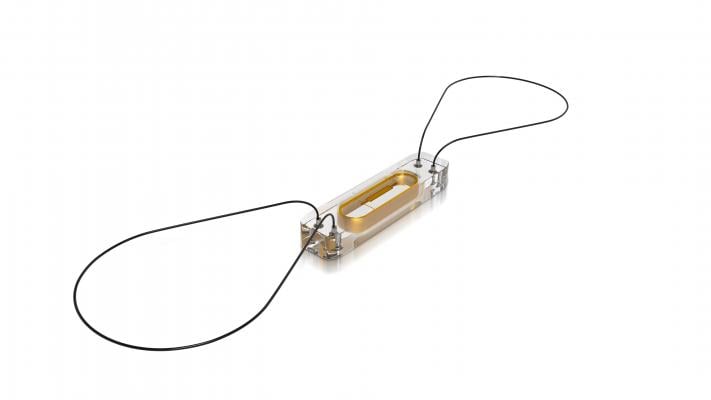
Image Courtesy of St. Jude Medical
November 19, 2014 — Gagnon Cardiovascular Institute at Morristown Medical Center has become the first facility in New Jersey to introduce a new miniaturized, wireless monitoring sensor to manage heart failure (HF). The CardioMEMS HF System, from St. Jude Medical, is the first and only U.S. Food and Drug Administration (FDA) approved heart failure monitoring device that has been proven to significantly reduce hospital admissions when used by physicians to manage heart failure.
The CardioMEMS HF System features a sensor that is implanted in the pulmonary artery (PA) during a non-surgical procedure to directly measure PA pressure. Increased PA pressures appear before weight and blood pressure changes, which are often used as indirect measures of worsening heart failure.
The new system allows patients to transmit daily sensor readings from their homes to their health care providers allowing for personalized and proactive management to reduce the likelihood of hospitalization. The CardioMEMS sensor is designed to last the lifetime of the patient and doesn't require batteries. Heart failure occurs when the heart is unable to pump enough blood to meet the body's demands.
According to the Centers for Disease Control and Prevention, more than 5.1 million Americans have heart failure, with 670,000 new cases diagnosed each year. Patients with heart failure are frequently hospitalized, have a reduced quality of life and face a higher risk of death. Data from a clinical trial showed that the CardioMEMS technology reduces heart failure hospital admissions by up to 37 percent.
According to the American Heart Association, the estimated direct and indirect cost of heart failure in the U.S. for 2012 was $31 billion and that number is expected to more than double by 2030.
For more information: www.heartfailureanswers.com

